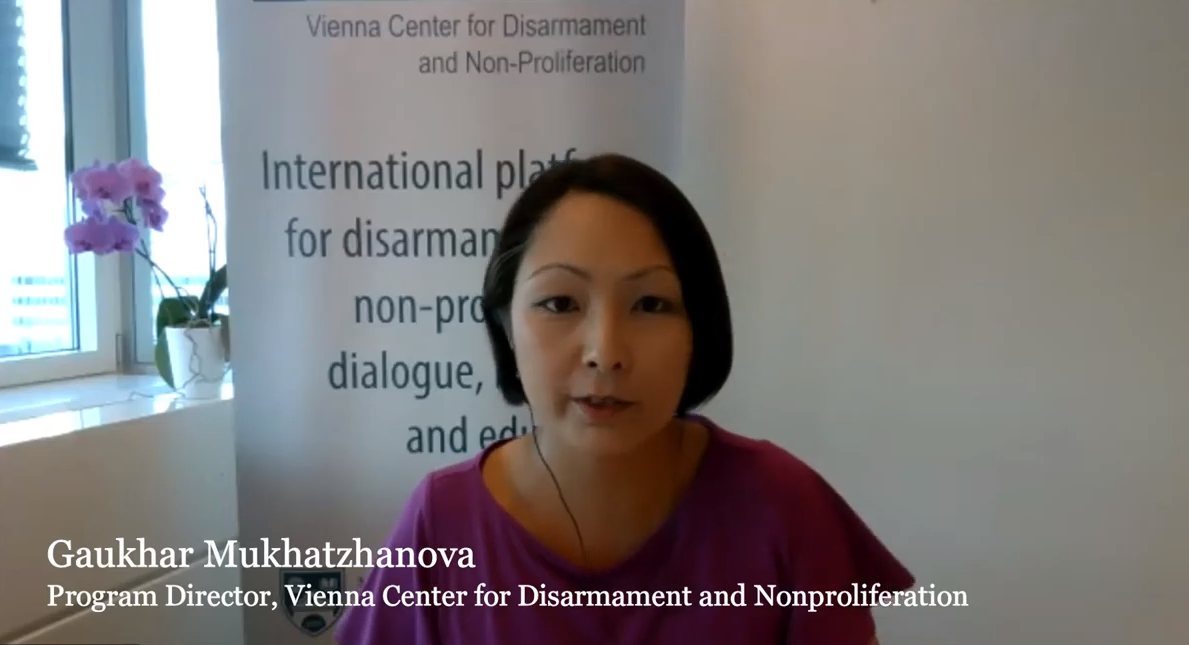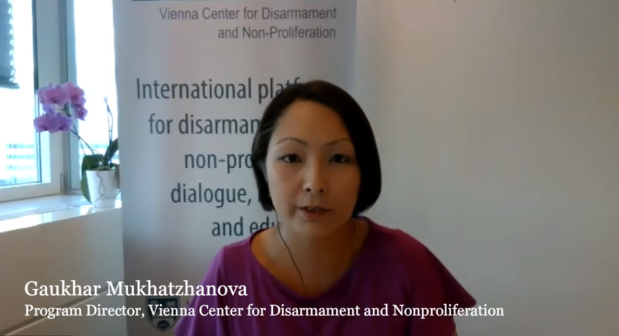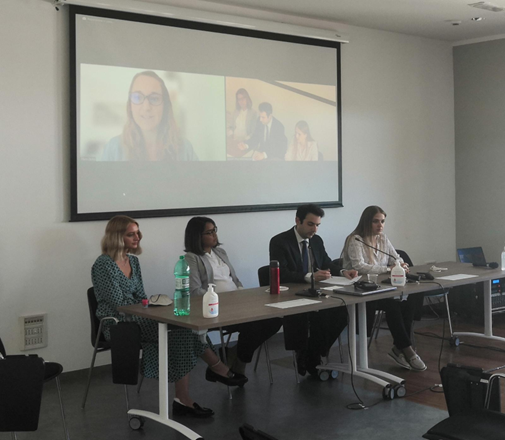
Calls for a prohibition on nuclear testing have been a central tenet in the nuclear field since before the Treaty on the Non-Proliferation of Nuclear Weapons (NPT). Leading up to the tenth NPT Review Conference, Director of the International Organizations in Nonproliferation Program Gaukhar Mukhatzhanova participated in a virtual panel discussion organized by the Arms Control Association entitled “75 Years After the Trinity: The Taboo Against Nuclear Testing and the Legacy of Past Nuclear Tests“.
Erzhan Kazykhanov, Ambassador of Kazakhstan to the United States, delivered welcome remarks, and Togzhan Kassenova (Center for Policy Research at the University at Albany) moderated the panel. Daryl G. Kimball (Arms Control Association) reviewed the state of the norm against nuclear testing codified in the Comprehensive Nuclear-Test-Ban Treaty, highlighting recent challenges to the norm and offering recommendations on addressing them. Alimzhan Akhmetov (Center for International Security and Policy), Tina Cordova (Tularosa Basin Downwinders Consortium), and Desmond Doulatram (Republic of the Marshall Islands National Nuclear Commission) shared stories from the communities and individuals affected by nuclear testing.

During her remarks, Ms. Mukhatzhanova focused on the nexus between the NPT and the pursuit of the prohibition on nuclear testing, and the CTBT in particular. The aspiration to ban all nuclear testing is reflected in the preamble of the NPT, which recalls “the determination…to seek to achieve the discontinuance of all test explosions of nuclear weapons for all time and to continue negotiations to this end.”
Ms. Mukhatzhanova observed that “the pursuit of that prohibition on nuclear testing is woven into the fabric of the Non-Proliferation Treaty and its review process.” The issue of negotiating a comprehensive nuclear test ban was among the central ones in the NPT review meetings throughout the 1980s, and since 1995, commitments related to the CTBT have been a part of every consensus outcome document. In 1995, part of the package of decisions that ensured the indefinite extension of the NPT was the commitment to conclude CTBT negotiations by 1996. Early entry into force of the CTBT was one of the 13 Practical Steps, agreed upon by NPT States Parties in 2000. And as many as five action items in the 64-Point Action Plan adopted by the 2010 Review Conference were devoted to the CTBT and moratoria on nuclear testing.
The focus on the CTBT in the NPT discussions appeared to have waned in the past decade, due both to the strength of the taboo against nuclear testing and perceived deadlock in efforts to secure further CTBT ratifications by key Annex II states. However, recent challenges, such as allegations of violations of nuclear testing moratoria against China and Russia and reports of the US officials discussing the resumption of nuclear testing, draw renewed attention to the importance of brining the CTBT into force.
Looking toward the upcoming Tenth NPT Review Conference, Ms. Mukhatzhanova ended her remarks with recommendations:
A recording of the panel discussion, including Ms. Mukhatzhanova’s remarks, is available below and on the Arms Control Association’s website.
The panel discussion was co-sponsored by the Center for Policy Research at the University at Albany with the support of the Embassy of Kazakhstan to the United States.


